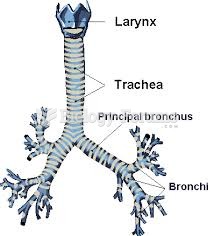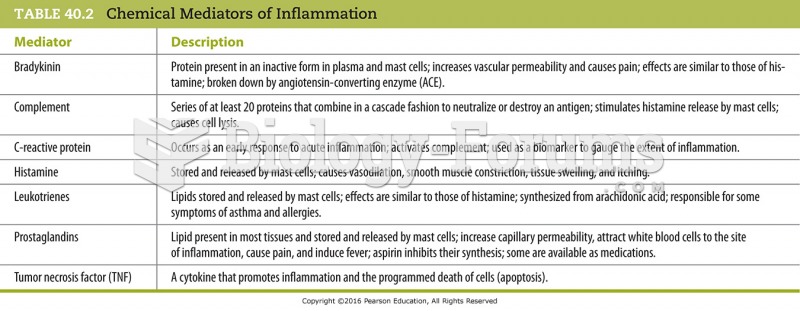|
|
|
The lipid bilayer is made of phospholipids. They are arranged in a double layer because one of their ends is attracted to water while the other is repelled by water.
Alcohol acts as a diuretic. Eight ounces of water is needed to metabolize just 1 ounce of alcohol.
Automated pill dispensing systems have alarms to alert patients when the correct dosing time has arrived. Most systems work with many varieties of medications, so patients who are taking a variety of drugs can still be in control of their dose regimen.
Liver spots have nothing whatsoever to do with the liver. They are a type of freckles commonly seen in older adults who have been out in the sun without sufficient sunscreen.
All adults should have their cholesterol levels checked once every 5 years. During 2009–2010, 69.4% of Americans age 20 and older reported having their cholesterol checked within the last five years.
 A tracheotomy tube in place, inserted through an opening in the front of the neck and anchored withi
A tracheotomy tube in place, inserted through an opening in the front of the neck and anchored withi
 According to neuroendocrine models of depression, repeated or chronic stress results in overactivity ...
According to neuroendocrine models of depression, repeated or chronic stress results in overactivity ...





